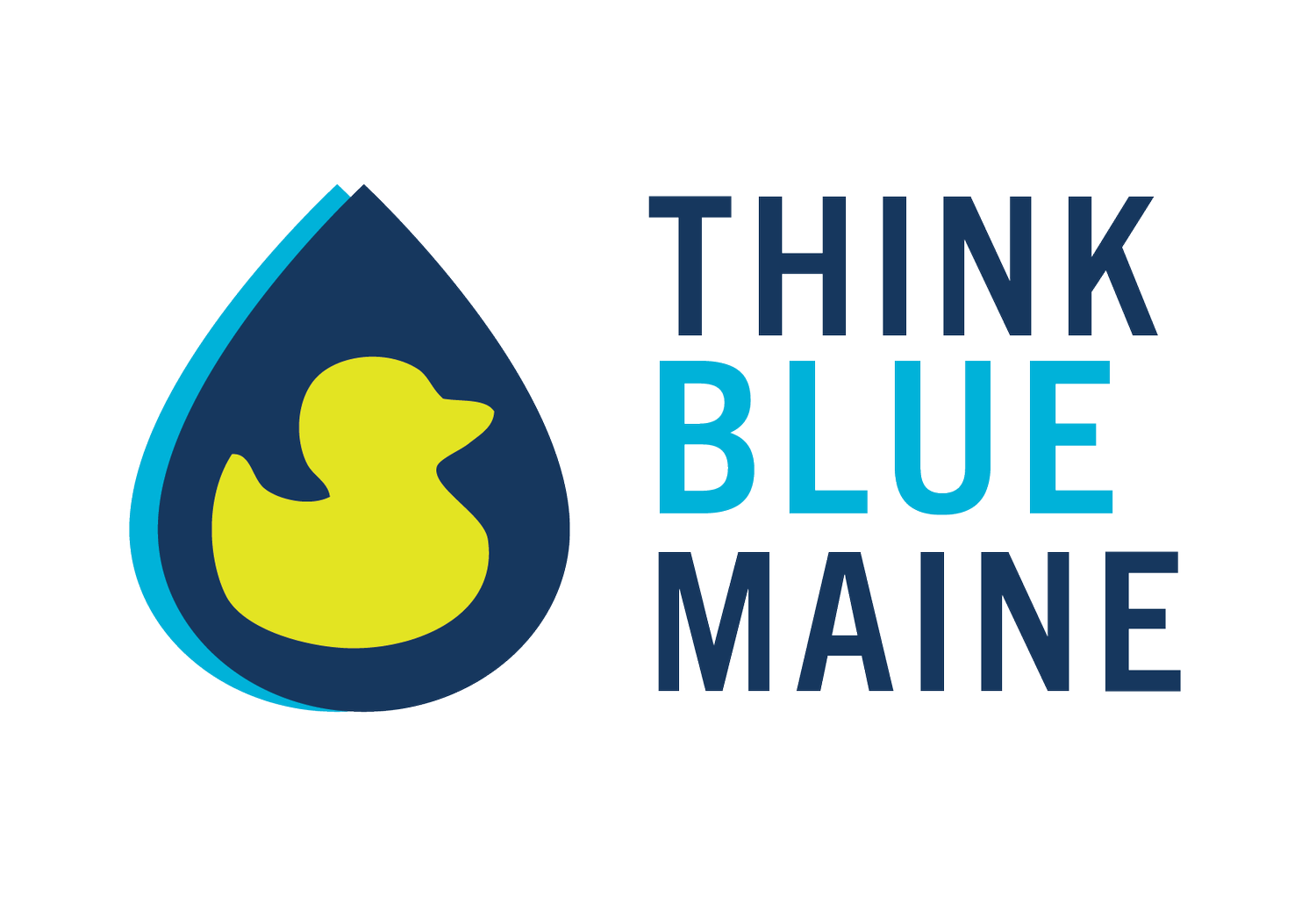
Think Blue Maine
-
What is stormwater runoff?
Stormwater is precipitation that does not soak into the ground. Runoff accumulates in large quantities as it flows off of rooftops, driveways, roads and other impervious surfaces, picking up soil and polluting chemicals in its wake. It then flows into a storm drain, through an underground network of pipes, where it discharges into local rivers and streams, untreated.

-
Why should we care about stormwater?
Stormwater contaminates our local water bodies with nutrients and bacteria from pet waste, oils from vehicles, litter, fertilizers, pesticides, soil, and other sources. Stormwater pollutants can be greatly reduced with simple practices like picking up pet waste and litter, reducing use of fertilizers and pesticides, and applying sand and salt correctly during the winter.

-
Who is responsible for the stormwater system?
Urbanized and developed municipalities and other large public entities require Clean Water Act permits to send stormwater to nearby water bodies due to an increased likelihood of stormwater pollutants. Read on to learn more about the stormwater regulations where you live in Maine.

How do I contribute?
RESIDENTS play an important role in keeping harmful pollutants out of runoff. See what you can do to reduce your impact.
BUSINESSES can reduce runoff from rooftops, parking lots, and infrastructure through rain gardens, vegetated swales, pervious pavement, and other practices.
MUNICIPALITIES maintain the stormwater system. More resources about permitting and regulations that each municipality follows can be found here.
To participate in local events and learn more about stormwater efforts in your area, visit your local STORMWATER WORKING GROUPS WEBSITES to see what measures are being taken to protect water quality.

